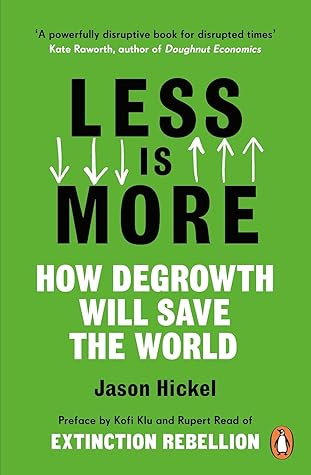More on this book
Community
Kindle Notes & Highlights
We in this society are inclined to always imagine more technological innovations as the way to solve our problems. But why are we not equally eager to imagine more social innovations too? It shows a great poverty of imagination to stop with capitalism, to assume that it is the only game in town.
Even though we have known for nearly half a century that human civilisation itself is at stake, there has been no progress in arresting ecological breakdown. None. It is an extraordinary paradox. Future generations will look back on us and marvel at how we could have known exactly what was going on, in excruciating detail, and yet failed to solve the problem.
people were encouraged to organise their lives around productivity.39 Those who fell behind in the productivity race and slipped into poverty were branded with the stigma of sin. Poverty was recast not as the consequence of dispossession, but as the sign of personal moral failing.
Even in liberal nations women come under heavy social pressure to reproduce, often to the point where those who choose to have fewer or no children are interrogated and stigmatised.
For decades, progress towards the goal of public sanitation was opposed, not enabled, by the capitalist class. Libertarian-minded landowners refused to allow officials to use their property, and refused to pay the taxes required to get it done.
‘The historical record is clear that economic growth itself has no direct, necessary positive implications for population health,’
Progress in human welfare has been driven by progressive political movements and governments that have managed to harness resources to deliver robust public goods and fair wages. In fact, the historical record shows that in the absence of these forces, growth has quite often worked against social progress, not for it.
Over and over again, the empirical evidence shows that it is possible to achieve high levels of human development without high levels of GDP.
Societies with unequal income distribution tend to be less happy. There are a number of reasons for this. Inequality creates a sense of unfairness; it erodes social trust, cohesion and solidarity. It’s also linked to poorer health, higher levels of crime and less social mobility.
countries that have robust welfare systems have the highest levels of human happiness, when controlling for other factors. And the more generous and universal the welfare system, the happier everyone becomes.
Over the four decades since 1980, no less than 46% of all new income from global economic growth has gone to the richest 5%.


